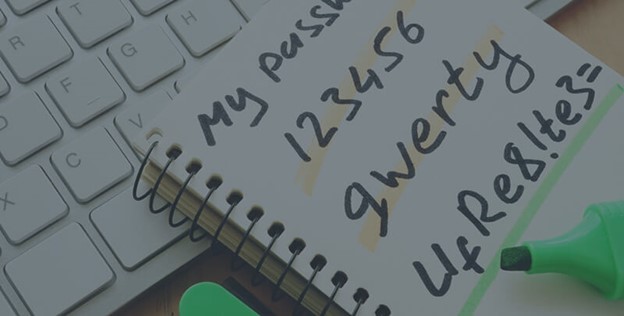Passwords are one of the most important lines of defense in protecting your online accounts. Passwords protect your finances, credit score, and identity. Unfortunately, many people don’t secure their passwords properly, leaving them vulnerable.
Even though passwords aren’t foolproof against thieves and hackers, following good practices can help keep you safe.
Here are five password best practices you should follow:
1. Stop Using Weak Passwords
Strong passwords should be understood by everyone. A computer program or thief can guess your password more easily if it is simple or obvious. Yet many people still use weak passwords, such as short phrases or the names of their friends and family.
Use some of the following practices to create strong passwords:
Make them long: computer programs that automatically attempt to guess passwords will be able to guess short passwords more easily. Passwords that are longer are harder to crack.
Avoid common phrases: common phrases, such as Bible quotes or baseball teams, make it easier to guess your intent.
Consider avoiding personal information: back in the day, your birthday or your mother’s maiden name might have been hard to guess. Today, thieves can find common personal information online. Never use your friends’ or family’s passwords.
Make sure you test your password ideas and variations on a site like How Secure is My Password before you commit to one.
2. Don’t Leave Them in the Open
You need to update your security protocol if your passwords are written on a piece of paper by your computer. In the event that someone swipes your password cheat sheet, they will have easy access to all your accounts, and you may have difficulty tracking who took it.
3. Stop Reusing Passwords
You might find it easier to remember the same password across multiple websites, but it leaves you vulnerable to hackers. All it takes is a thief to crack a password for one of your accounts. The thief now has access to multiple accounts and websites if you reuse the password across multiple accounts and websites.
Obviously, this makes remembering passwords more difficult. Now, let’s talk about it…
4. Use a Password Manager
Password managers make it easier for you to remember and create passwords. They automatically generate unique, strong passwords for every account you own. Using the manager, you only have to create one master password, and it will automatically fill in user IDs and passwords for sites and apps that you use.
There is a risk associated with this. In the event that a hacker manages to guess your master password or breaches the password management company, your accounts may be compromised. However, password managers often add additional layers of security to your account by implementing encryption and multifactor authentication.
Password managers are available in free and paid versions. Do your research to find the best one for you.
5. Use Multifactor Authentication
It is becoming increasingly common to use multifactor authentication for all kinds of online services. Multifactor authentication provides an additional verification requirement when logging in. Multifactor authentication sends you a temporary code by text, email, or authentication app when you enter your password. These codes usually expire very quickly and are required to access your account.
It is less likely for a thief to access your account even if they know your password. They would also need access to your authentication app, phone, or email. Although multifactor authentication makes it a little bit harder to access your accounts, it will help you increase your security.
Is your personal information on the dark web? Make sure your identity isn’t at risk!

